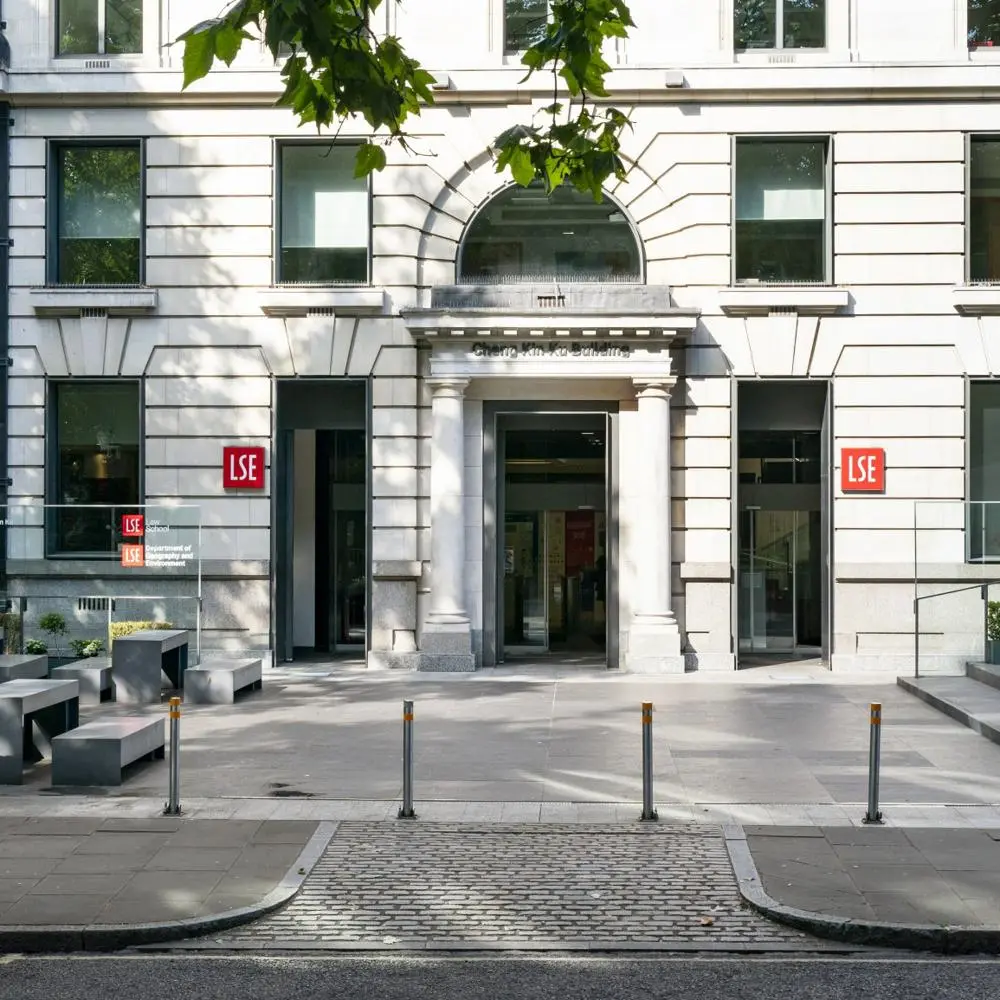Arash Layeghi (MSc Philosophy of Science)

Testimonial
Question 1. Why did you choose LSE and the programme?
My undergraduate degree was in Computer Science, but even then, I realised I was more interested in philosophical questions. I became familiar with the history and philosophy of science through introductory texts and discovered that I was deeply passionate about it. LSE’s MSc Philosophy of Science programme seemed to be one of the best worldwide for enhancing my understanding and deepening my knowledge in this discipline. It is a taught master’s with a variety of modules, such as Philosophy of Science and Einstein for Everyone, through which one can learn not only general issues in the philosophy of science, but also specific topics related to Special and General Relativity. Moreover, given my personal studies in recent years, it was deeply inspiring for me to study in a department founded by Karl Popper, where Imre Lakatos taught until his death, and where influential philosophers such as Nancy Cartwright and John Worrall have been faculty members.
Question 2. Which aspect of your studies were the most beneficial for your professional as well as personal development?
Given my background, which was not in philosophy, this programme greatly helped me improve my philosophical writing, both in essays and in my dissertation. First, the dissertation seminar, taught by Professor Roman Frigg, was particularly helpful in understanding strong and weak reasoning, ensuring clarity of exposition, and recognising various fallacies by discussing past dissertations and even papers by well-known philosophers. Second, by encouraging us to meet high standards in our articulations and critical comments, both in seminar discussions and through constructive feedback on formative essays across all my courses, I feel that my general argumentative skills and my philosophical writing in particular have significantly improved. Philosophy of Science, taught by Professor Miklós Rédei, was especially instrumental in this regard, both through seminar discussions and feedback on formative essays.
Coming from a non-philosophy background, I had read philosophy papers and books, but I lacked the confidence to express my own philosophical voice. This programme gave me that confidence and voice; it empowered me to critically argue as a philosopher.
Question 3. What is your fondest memory of your time here?
It is very hard to choose just one, as there were several highlights. Our in-depth seminar discussions with genuinely enthusiastic students in philosophy from diverse backgrounds — sometimes continuing even after the sessions — were particularly insightful and enjoyable for me.
I also have vivid memories of the departmental weekend event at Cumberland Lodge in November. It was a wonderful experience to attend engaging presentations by LSE faculty and guest professors, while also having informal conversations with peers and professors during meals or walking in the beautiful surrounding countryside. The combination of philosophy, nature, and socialising with peers and professors created a truly unique experience.
Another memorable moment was attending the Lakatos Award Lecture this year, along with the reception afterwards, hosted annually by the LSE Philosophy department. It was inspiring to witness such a prominent event in the philosophy of science and to have the opportunity to speak with renowned philosophers like John Worrall.
Question 4. Why would you recommend studying at LSE and the Philosophy department in particular?
I would recommend LSE in general because it is an institution of excellence that offers a high-quality, intellectually rich educational experience. It was a challenging yet full of learning and joy experience, as it pushes you to realise your full potential.
My highest recommendation goes to the Philosophy department in particular, for several reasons: the very high standards of teaching; the faculty members’ approachability during office hours; the research-led teaching approach adopted by most lecturers, which enriches the learning experience; and the thoughtful educational content of courses, many of which connect closely with the sciences, supported by the fact that all faculty members have a background in science. The department also actively welcomes feedback from students through various channels and maintains strong communication with them via student representatives.
Question 5. Your LSE experience in your own words
A realised dream. It was a turning point in both my intellectual and personal life. Coming from a non-philosophy background, I had read philosophy papers and books, but I lacked the confidence to express my own philosophical voice. This programme gave me that confidence and voice; it empowered me to critically argue as a philosopher. I now see a limitless horizon ahead, with new possibilities for my academic and professional path. At the same time, the friendships, connections, experiences, and memories I shared with students and staff, both within and beyond the department, are a truly invaluable gift. I am deeply grateful to LSE in general, and to the Philosophy Department in particular, for fostering a culturally and intellectually diverse community that enabled each of us to grow in profound ways.
